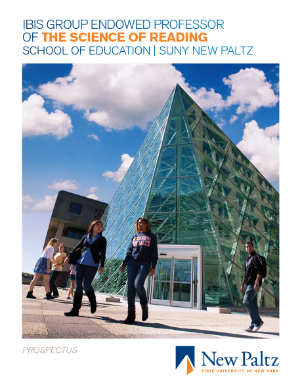Program Learning Outcomes
- S. in Early Childhood & Childhood Education
Candidates who successfully complete all required components of the BS in Early Childhood and Childhood Education Dual Certification Program at the State University of New York at New Paltz will:
- Content Knowledge: Demonstrate an awareness and understanding of the teaching profession, articulate a developing philosophy of education that incorporates an understanding of relevant theories and models of education and mastery of knowledge and skills in a chosen content area of academic concentration.
- Planning: Be able to plan lessons in early childhood/childhood education that are standards-based, clear and organized, rely upon a variety of developmentally appropriate instructional strategies and appropriate technologies, differentiate instruction in ways that provide opportunities to promote appreciation of diversity, tolerance, and inclusion in safe, democratic, and equitable learning environments.
- Assessment of B-6 Learning: Be able to select, design, and implement authentic and appropriate formative and summative assessments to evaluate student learning, consider assessment data when making instructional decisions, and identify effective or problematic teaching moments as they are occurring in order to facilitate student growth in specified content, cognitive skills, and/or social-emotional skills.
- Pedagogical Practice: Demonstrate the ability to maximize student learning by incorporating content and pedagogical content knowledge, appropriate and effective technology, and a variety of developmentally and contextually appropriate evidence-based instructional strategies to make learning meaningful for students while teaching.
- Dispositions: Exhibit the knowledge, skills, and dispositions necessary to practice an ethically informed and self-reflective philosophy, participate effectively in institutional change, and develop respectful relationships with students, families, communities and colleagues.
- Critical Thinking: Identify, analyze, and evaluate different methods of planning, assessing, and teaching in order to develop well-reasoned arguments that support pedagogical decisions. Also demonstrate an appropriate level of proficiency in written and oral communication, critical thinking and analytical mathematical and scientific reasoning.
- Information Management: Use technology and basic research techniques in order to locate, evaluate, and synthesize best-practices concepts in content knowledge, planning, assessment, and pedagogical practice.








